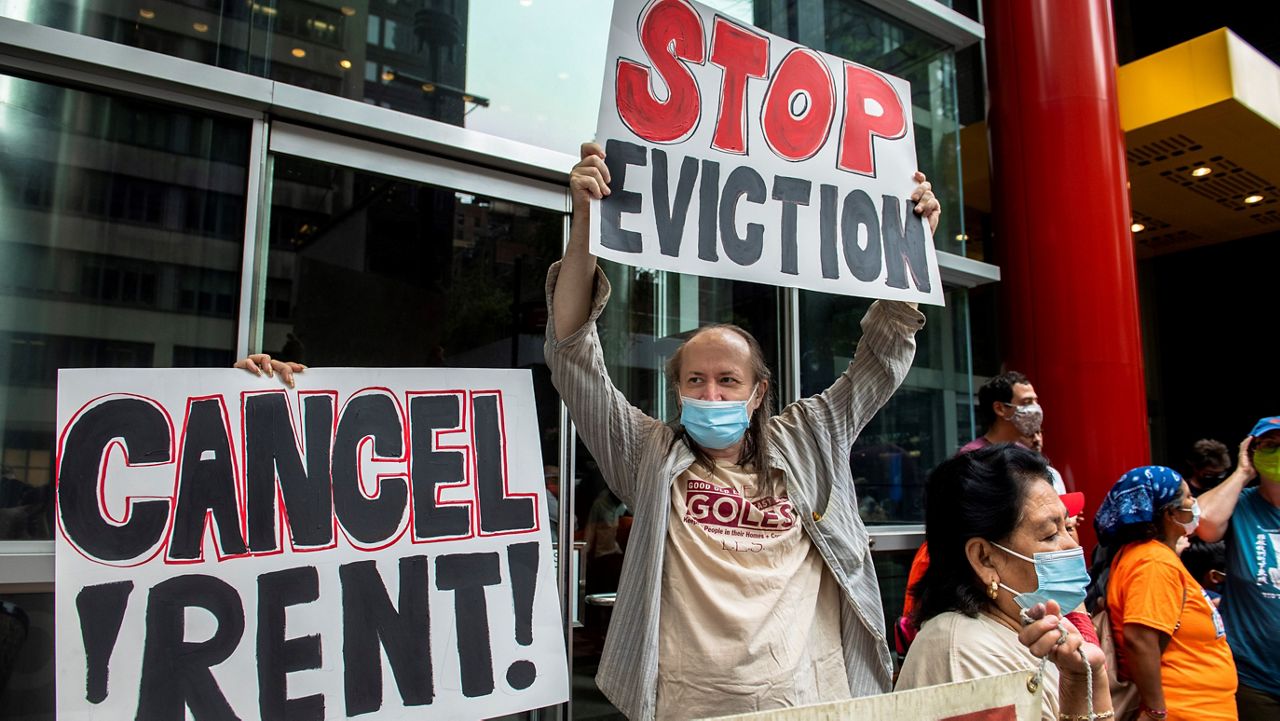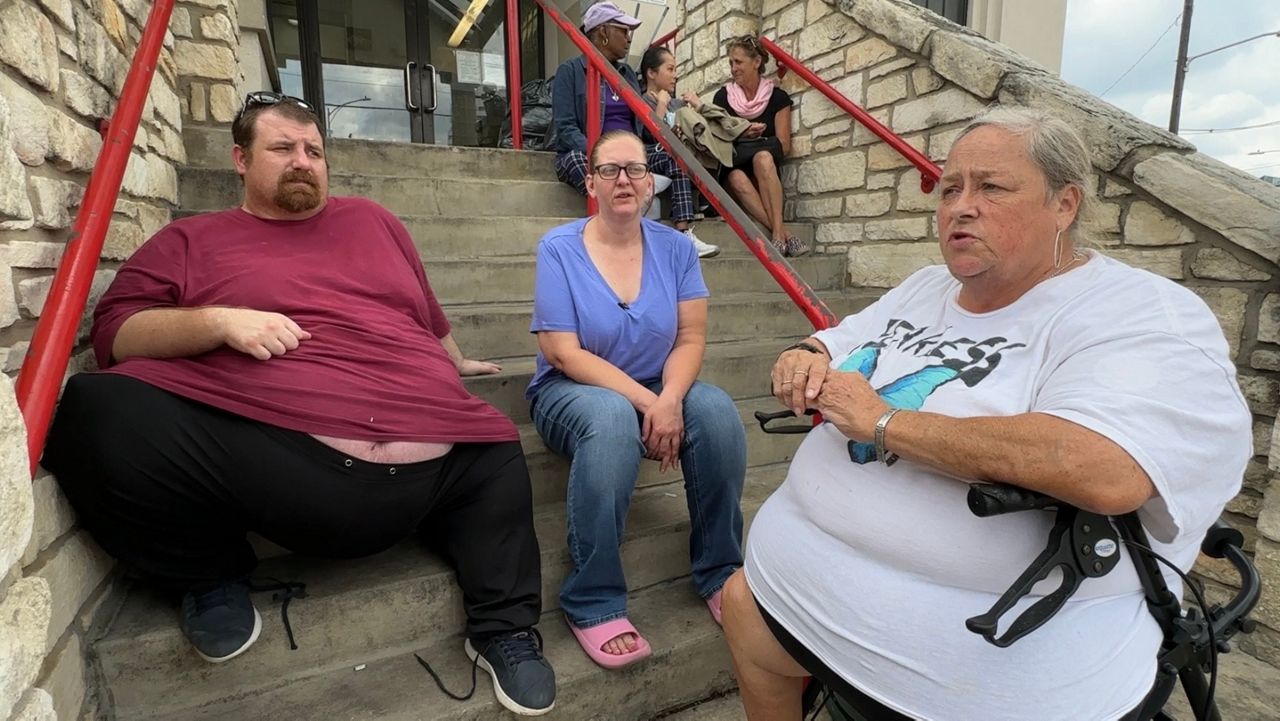TEXAS — In September, shortly after the Centers for Disease Control and Prevention halted evictions for most tenants nationwide, the Texas Supreme Court issued an order giving judges the authority to enforce the CDC’s moratorium.
The federal order required tenants to file declarations with the court saying they were eligible, and Texas judges were required to review them. At the end of March, without announcement or explanation, the Texas Supreme Court allowed that order to expire.
Judges across the state started allowing evictions to continue, even when the tenant complied with the federal law and presented a declaration saying they were covered by the CDC’s moratorium.
By July 31, when the CDC’s national moratorium expired, only 12% of tenants in Houston courtrooms had been able to successfully invoke the order to stay in their homes, according to January Advisors, a data analytics company based in Houston. Across Harris Country, the moratorium protected just 13% of households that ended up in eviction court.
When the Texas Supreme Court declined to extend its ruling giving judges the authority to enforce the CDC moratorium, they essentially nullified the CDC moratorium without violating federal law.
Families facing eviction are subject to an uneven patchwork of protections that vary depending on where in the United States they live. Those protections are also subject to the interpretations of judges. Nationwide, thousands of judges hear eviction cases, but because each operates within a different court system, it’s impossible to track just how those judges have interpreted the moratorium.
“It boils down to: Does the judge in that particular case or court or county or docket view it as constitutionally authorized?” said Jim Raftery, a senior analyst at the National Center for State Courts.
In Texas, that question falls to justices of the peace. JPs are elected officials and many are not lawyers. In Texas, JPs follow the guidance and training of the Texas Justice Court Training Center, a group that provides training and education for JPs. After the Texas Supreme Court withdrew its emergency order at the end of March, TJCTC published guidance saying that the CDC eviction moratorium “is not a matter that a justice can or should enforce.”
“They’re basically saying it’s completely up to the judge’s discretion as to whether or not they want to enforce the CDC moratorium,” says Stephen Campbell, a lawyer with the Dallas Eviction Advocacy Center. “That’s not how federal law works. You don’t have discretion to enforce federal law.” Since April of this year, he says the CDC moratorium has had little effect in North Texas courts. “[Judges] will explicitly say the CDC moratorium does not apply in this court. Even if the person can present the signed CDC declaration at the day of the hearing, it might as well be a piece of tissue paper.”
Because landlords have yet to face significant fines or penalties for violating the order, many have chosen to take their chances and proceed with eviction. As of Aug. 7, there have been 43,216 evictions filed in the Dallas-Fort Worth area since the start of the pandemic, according to Eviction Lab, and 35,486 filed in Harris County.
Meanwhile, in Travis County, JPs decided in March 2020 not to hear eviction cases when the only issue was someone falling behind on rent. That decision has deterred landlords from filing: Since the start of the pandemic, there have been only 1,411 evictions filed in Travis County.
Many corporate landlords are filing for eviction even as they rake in profits. Based in Dallas, Invitation Homes is the nation’s largest landlord of single-family homes. Since Sept. 2020, the company has filed to evict more than 800 households, including at least 46 in Texas. The company did not respond to a request for comment, but on an earnings call in February, CEO Dallas Tanner said the company had maintained rent collections around 97% of its historical rate throughout the pandemic. “COVID appears to have been beneficial for demand,” he said. In 2020, the company’s profits grew by 35%, to $196 million.
According to data collected by the Private Equity Stakeholder Project, Invitation Homes was one of the “more aggressive” companies. Between Sept. 4, 2020 — when the CDC order went into effect — and June 30, 2021, corporate landlords have filed to evict 75,000 households in six states, with nearly 18,500 of the evictions filed in Harris and Tarrant counties alone.
In late July, Rep. James Clyburn announced that the Select Subcommittee on the Coronavirus Crisis would investigate four corporate landlords — Invitation Homes, Pretium Partners, Ventron Management, and The Siegel Group — for allegedly evicting residents in violation of the CDC moratorium. This appears to be the only investigation into potential violators.
On Aug. 3, the CDC issued a new moratorium, halting evictions in areas experiencing “substantial” and “high” COVID-19 spread, covering 91% of counties nationally. Landlord groups have already sued in federal court to block the new order, as they did before. The first moratorium was upheld by the U.S. Supreme Court in June “because the CDC plans to end the moratorium in only a few weeks,” wrote Justice Brett Kavanaugh. Any additional action to halt evictions would need congressional approval, he wrote.
That means the Department of Justice — or its district courts — is unlikely to pursue charges against landlords, according to data from St. Mary’s University School of Law in San Antonio. To the extent the DOJ is involved with the new moratorium, it will likely be focused on defending it against legal challenge, rather than proactively going after violators, he says. And while the order remains contested, a judge is unlikely to sanction a landlord based on a law that could soon be overturned.
As the time runs out on federal protections, tenant advocates are rushing to fast-track rent relief to impatient landlords and increasingly desperate tenants.










